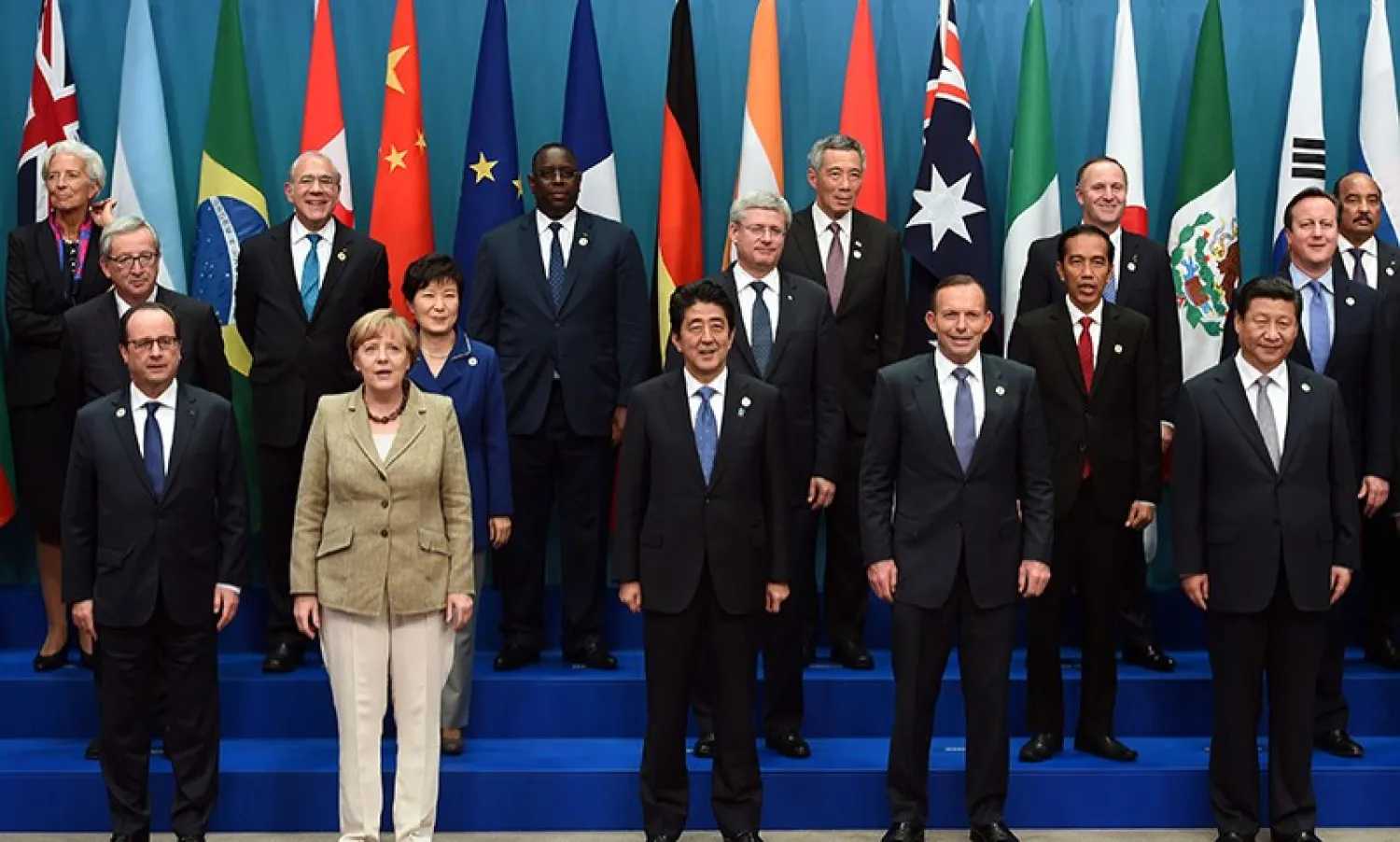Climate change and tax issues dominated the two-days discussions of the G20 Brisbane 2014 summit in Australia, concluding with a pledge to accelerate global economic growth and address climate issues.
The closing statement of the summit, during which Saudi Arabia was represented by the then-Crown Prince King Salman bin Abdulaziz, stressed the need to encourage progress achieved under the auspices of the Organization for Economic Cooperation and Development (OECD), and combat tax concessions for multinational companies.
The G20 reaffirmed its support for “mobilizing finance for adaptation and mitigation”, such as the Green Climate Fund, which aims to help countries that are most at risk.
“We will work together to adopt successfully a protocol, another legal instrument or an agreed outcome with legal force under the UNFCCC that is applicable to all parties at the 21st Conference of the Parties (COP21) in Paris in 2015,” read the 2014 communique.
The following G20 summit was hosted by Turkey in Antalya, and it namely addressed combating terrorism and the refugee crisis created by the ongoing conflict in Syria since 2011, as well as development and investment issues.
Two days before the Antalya summit, ISIS claimed responsibility for two terrorist attacks in Paris and Ankara.
The summit discussed promoting development and investment, and condemned in its closing statement the “heinous attacks” in Paris, calling for the need to counter terrorism financing and enhance information exchange between countries in this regard.
The statement expressed states' concerns about the increasing influx of foreign terrorists, stressing that terrorism is not linked to any religion, nationality, or race. It urged the need to strengthen border security and aviation safety.
Regarding the refugee crisis, the statement reiterated the need to address this global problem in an organized and comprehensive manner.
It called upon all states to “contribute to responding to this crisis, and share in the burdens associated with it, including through refugee resettlement, other forms of humanitarian admission, humanitarian aid, and efforts to ensure that refugees can access services, education, and livelihood opportunities.”
Economically, the G20 admitted that global growth was uneven and fell short of the expectation, however, it expected recovery to gain momentum.
The statement urged governments and central banks to implement fiscal policies that support growth and create job opportunities, without utilizing interest rates as a means to support economic activity.
“We reiterate our commitment to implement fiscal policies flexibly to take into account near-term economic conditions, so as to support growth and job creation.”
G20 also pledged to refrain from competitive devaluation and resist all forms of protectionism, after the controversy created by China's unexpected devaluation of its national currency, and related concerns about the deterioration of the Chinese economy with the significant decline in market value.










